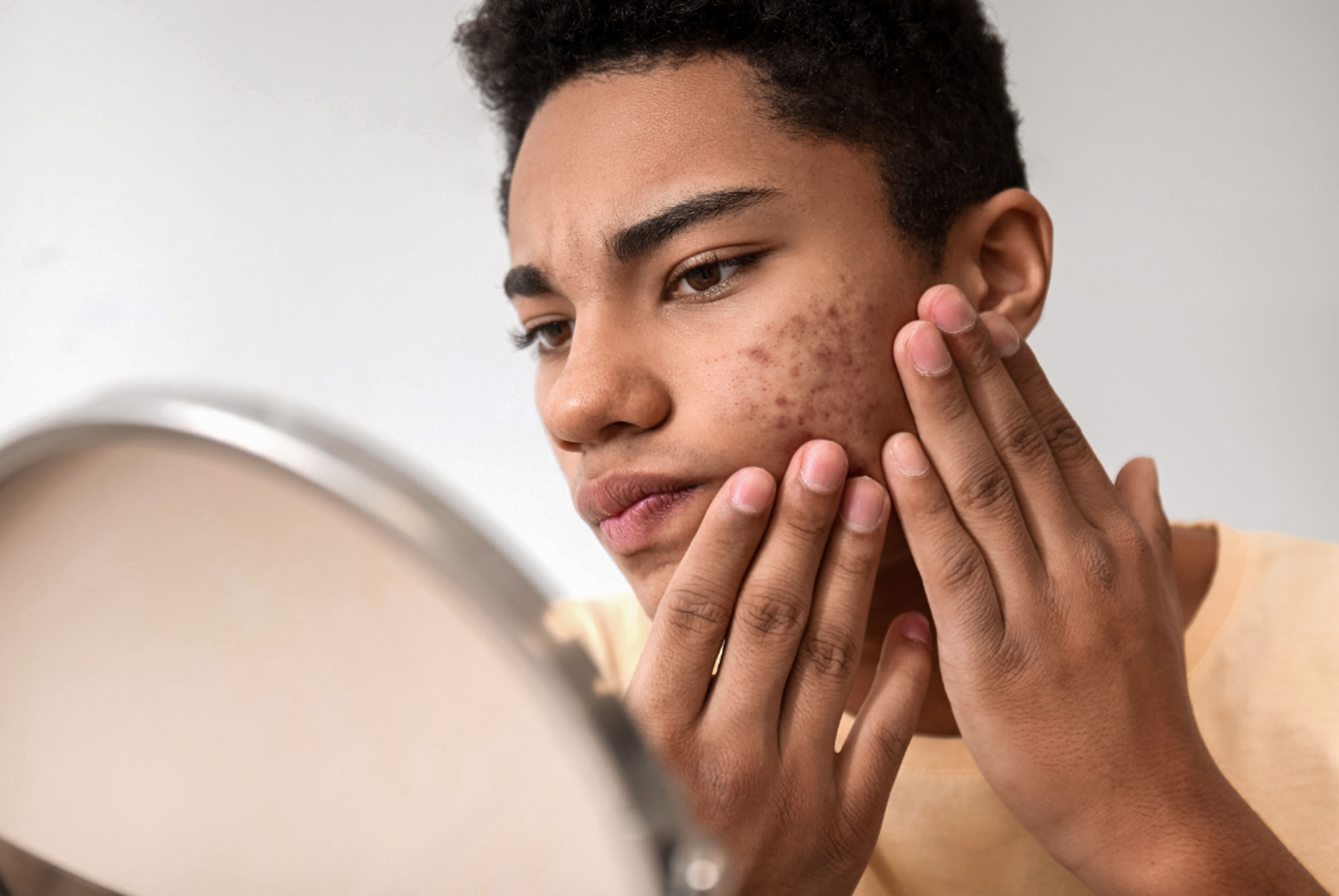Acne scars are often caused by intense inflammation in the skin, which damages the skin and disrupts natural wound healing. The scars can range in appearance from shallow, mottled depressions to deep, atrophic scars (pitted skin). Understanding the mechanisms of acne formation is crucial for developing effective prevention and management strategies.

- Acne
Acne scars: prevention and treatment
Written by: Editors
Modified on:
Acne is a complex dermatological condition that can leave its mark well beyond its active state. In extreme cases, it leaves behind residual scarring which can have significant psychosocial consequences and impact a person's quality of life. Fortunately, there are several effective methods available to prevent acne scars from forming and to treat existing scars. In this article, we offer detailed and science-backed advice on how to improve your skin and minimise scarring.
Diet and acne scars
Diet can play a role in maintaining healthy skin and potentially help to repair acne scars faster. Specific nutrients such as Vitamin C, zinc and omega-3 fatty acids can improve skin health by stimulating the production of collagen and reducing inflammation.
Prevention of acne scars
Proper skin care and avoiding certain behaviours is essential to avoiding scars. Here are some crucial tips:
- Don’t pick, scratch or squeeze: Squeezing or scratching acne lesions causes extra damage to your skin and promotes inflammation, which will make scars worse. Instead, use medical treatments such as salicylic acid or benzoyl peroxide to keep your acne under control.
- Use skin-friendly products: Avoid products that can irritate the skin and make acne worse. Opt for hypoallergenic, non-comedogenic products (products that don’t clog the pores) to keep your skin healthy.
- Wear sunblock: Ultraviolet (UV) radiation from the sun can exacerbate post-inflammatory hyperpigmentation (dark spots on the skin after skin damage or inflammation) and slow down skin healing. Make sure you wear sunscreen with a sun protection factor (SPF) of 30 or higher every day to protect your skin.
- Early intervention: See a dermatologist if you suffer from severe or persistent acne. Treating your acne early and effectively before it gets worse will reduce your risk of scars.
Specific nutrients and their role
Some nutrients help clear acne scars by promoting skin health.
- Vitamin C: This antioxidant helps your body produce collagen, a protein that keeps your skin firm and elastic. It also reduces inflammation. Foods high in Vitamin C include citrus fruits, bell peppers and strawberries.
- Zinc: This mineral helps regulate sebum production and promotes wound healing. Foods high in zinc include nuts, seeds and legumes.
- Omega-3 fatty acids: These fatty acids have anti-inflammatory properties that support healing processes. Foods high in omega-3 include oily fish, flaxseed and walnuts.
Treating acne scars
There are a variety of treatment options available for people who have acne scars. Treatments should always be carried out by a professional. Below, we have listed five scientifically supported methods.
- Topical treatments: The most commonly used topical acne treatments are creams and gels that contain ingredients such as retinoids (e.g., tretinoin), Vitamin C and glycolic acid. These substances help improve skin texture and scarring by stimulating cell turnover and promoting collagen production.
- Microdermabrasion and chemical peels: These non-invasive procedures work by removing the top layers of damaged skin, promoting the growth of new, healthy skin cells. These treatments helps make the skin smoother and fade scars.
- Laser therapy: Laser treatments using fractional lasers and erbium lasers can reach deeper layers of skin and stimulate collagen production. This treatment option improves the structure of the skin and is particularly effective for deep, atrophic scars.
- Microneedling: This procedure uses fine needles to create controlled micro-injuries in the skin's dermal layer. This targeted damage triggers the production of collagen and improves skin texture, resulting in a visible reduction of scars.
- Injectables: Deep scars can be removed using hyaluronic acid fillers. Injectables improve skin texture and make the skin look smoother.
Conclusion
Acne scars can have a significant impact on how you look and feel about yourself. However, with the right preventative measures and treatments, they can be improved immensely. By getting timely professional help and using proven treatment methods, you can reduce the appearance of scars and improve your skin texture.
Would you like more information about acne?